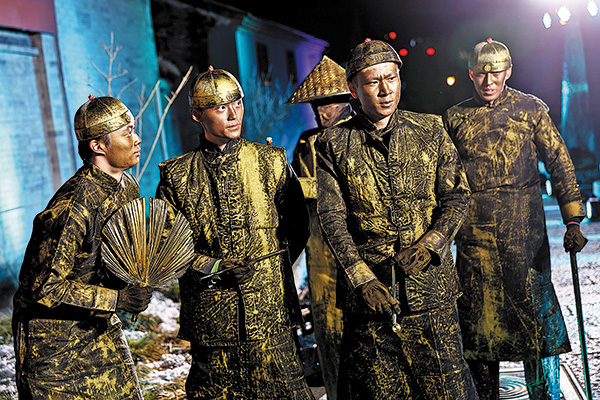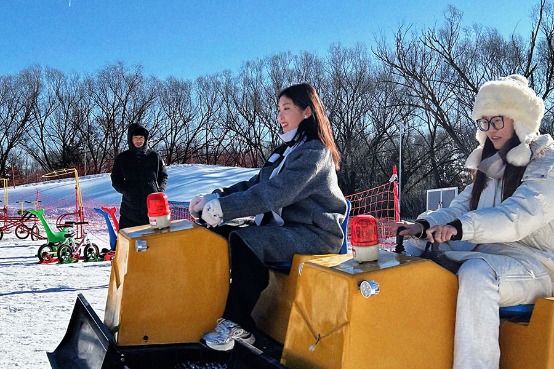Guild halls regain their welcoming lure
Buildings provide a cultural backdrop as they take on a new dimension, Yang Feiyue reports.


Artists give a performance themed on the history of guild halls in China at the Yanliao (Pigment) Guild Hall in February last year.[Photo by Hu Yuanjia/For China Daily]
The rebirth of Shaozhou Guild Hall was a result of the partnership plan launched by the capital city's Dongcheng district to revitalize guild halls.
The district is home to 37 guild halls from various regions that feature commercial activities, food and Chinese operas.
It recently reached agreements with five cities, including Huanggang in Hubei province, Chizhou in Anhui province and Longyan in Fujian province, to restore their old guild halls and promote their use in modern society.
According to the plan, the district aims to build a cultural space that demonstrates the significance and attraction of guild halls, stages a diverse range of opera performances, and promotes regional intangible cultural heritage. Efforts will be made to establish commercial areas centered on the guild halls.
The district will promote the integrated development of industries related to cultural innovation and design, thus fostering a number of cultural symbols and commercial brands.
With 20 specific measures to be implemented, such as those for space design and market operations, these cities will work together to explore the development of guild halls and align them with modern society.
The release of the plan will help allocate resources of multiple parties to showcase the charming culture of guild halls, according to Dongcheng district authorities.
"It is to use the promotion of local cultural ties to establish a new type of cooperative relationship that involves economic and cultural interaction, as well as social assistance, aiming to jointly build a new cultural district with international influence," says Zhao Haiying, a senior official with the district.
Chen Rongshui, vice-mayor of Longyan, says the city will strive to highlight local history and culture as a revolutionary base at the Tingzhou Guild Hall and turn it into an important economic and cultural exchange window in Beijing.
Leng Song, a researcher with the Institute of Journalism and Communication Studies, Chinese Academy of Social Sciences, considers guild halls an embodiment of diverse regional cultures and a witness to the development of Beijing.
"They are a unique cultural heritage left by history, showcasing the openness and inclusiveness of the capital's culture," Leng says.
The move will help gather cultural resources and enhance public recognition of culture through the innovative integration of excellent opera, regional exhibition, tourism and digital technology, Leng says.
Du Juan contributed to this story.

































